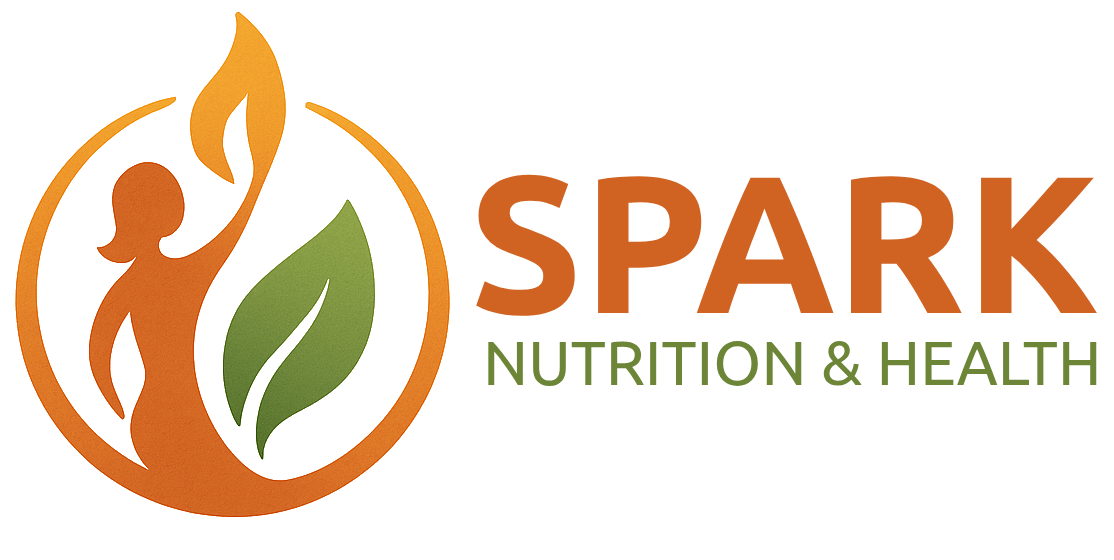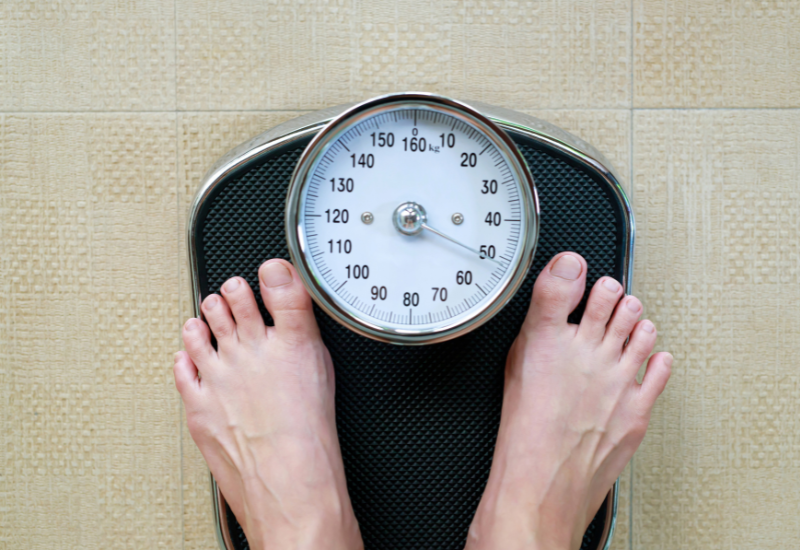Why You’re Gaining Weight in Midlife
Frustrated by weight gain even though you’re eating and moving the same way you always have?
Well, I’ve got tips for you!
Midlife weight gain is real!!…and it’s not your fault.
Hormonal shifts are happening beneath the surface, and your body is doing its best to adapt.
As estrogen declines, your body becomes more prone to storing fat, especially around the abdomen. Your metabolism naturally slows, and muscle mass tends to decline if you’re not actively maintaining it. Even subtle changes in hormone levels can impact hunger and fullness cues, insulin sensitivity, and fat storage.
I’ve got a couple tips on what you can do
1. Prioritize protein to preserve muscle and promote satiety
As estrogen levels decline during perimenopause, women naturally lose muscle mass, which can lower metabolism and increase body fat.
Protein is key to helping preserve and build lean muscle.
How to do it:
- Aim for 1.2–1.6 g of protein per kg of body weight per day
- Include a protein source at every meal and snack
(e.g., eggs or Greek yogurt at breakfast, legumes or chicken at lunch, tofu or salmon at dinner)
- Distribute protein evenly throughout the day
- Incorporate high-quality proteins like lean meats, eggs, dairy, soy, and legumes (or use a supplement if needed)
2. Lift weights to support metabolism and maintain strength
Resistance training is one of the most effective tools to counteract age-related muscle loss and support bone density, which is especially important during the menopausal transition.
How to do it:
- Strength train 2–4 times per week, focusing on compound movements (e.g., squats, deadlifts, rows, presses)
- Use progressive overload: gradually increase the weight or resistance
- Include exercises that target major muscle groups and build core stability
- Don’t be afraid of heavier weights—lifting heavy won’t make you bulky, but it will help boost metabolism and strength
3. Focus on fiber-rich carbs for blood sugar balance and digestion
Perimenopause can increase insulin resistance, making it harder to manage blood sugar.
Fiber-rich carbs slow digestion, reduce blood sugar spikes, and support gut health.
How to do it:
- Choose whole, minimally processed carbs like oats, quinoa, sweet potatoes, lentils, beans, and berries
- Aim for 25–30 grams of fiber per day (increase gradually!)
- Pair carbs with protein or healthy fats to help stabilize blood sugars
- Watch portion sizes—aim for 30–45g of carbs per meal, depending on your needs and activity level
4. Sleep and stress: Lack of sleep and chronic stress can increase cortisol
Cortisol promotes fat storage and cravings. During perimenopause, hormone changes can disrupt sleep and heighten stress response, affecting mood, appetite, and weight.
How to do it:
- Create a calming bedtime routine: limit screens, dim lights, practice deep breathing or journaling
- Aim for 7–9 hours of quality sleep
- If falling asleep is hard, try magnesium-rich foods (e.g., pumpkin seeds, spinach)
- Consider consulting a provider about helpful supplements
- Practice daily stress management: mindfulness, yoga, walking, or therapy
- Minimize caffeine and alcohol, especially in the evening—they can disrupt sleep and raise cortisol
Remember:
Your body isn’t broken…it’s evolving.
The changes you’re experiencing are not signs of failure—they’re signals that your body needs something different.
By adjusting how you nourish, move, and care for yourself, you can support your metabolism, manage symptoms, and feel more in control.
Midlife is not the end of thriving…
It can be a powerful new beginning.
Small, consistent shifts really do add up.
You’ve got this!





